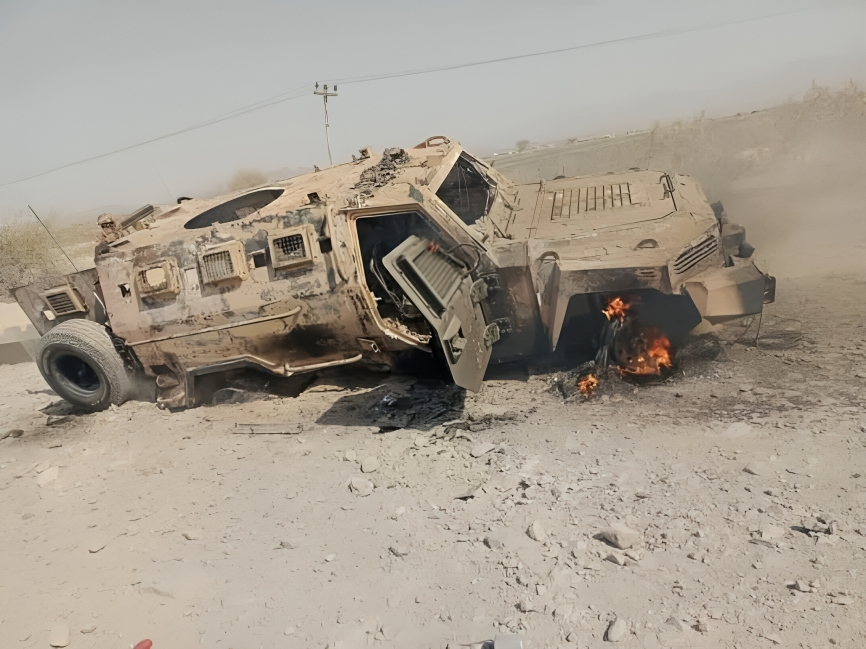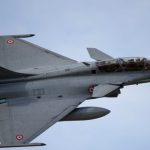A powerful improvised explosive device (IED) blast targeted a Pakistan Army convoy in the restive Kolwah region of Balochistan on Thursday, killing 10 soldiers and destroying a Mine-Resistant Ambush Protected (MRAP) vehicle. The Baloch Liberation Army (BLA), a banned separatist organization, has claimed responsibility for the deadly strike.
The attack took place in a remote stretch near Kolwah, a district long troubled by ethnic insurgency and military crackdowns. Images from the scene reveal the MRAP vehicle engulfed in flames, reduced to twisted metal and smoldering wreckage. The BLA issued a statement claiming the operation as retaliation against what it called Pakistan’s exploitation of Balochistan’s resources and continued political repression of the Baloch people.
This marks one of the deadliest attacks in recent months and adds to a surge in BLA-led violence in 2025. The group has carried out a string of operations this year, including a roadside bombing in Mastung on April 15 that killed three security personnel and injured 18, and another IED blast in Kech District on April 17 targeting a bomb disposal unit, resulting in one fatality and two injuries.
The BLA and other separatist outfits have increasingly focused on disrupting infrastructure and military logistics, particularly projects associated with the China-Pakistan Economic Corridor (CPEC). The Gwadar port, a flagship component of CPEC, has become a recurring target amid growing local resentment. Residents claim that the economic benefits of the port have bypassed indigenous communities, with limited employment opportunities and increased militarization fueling further alienation.
Balochistan, Pakistan’s largest but most underdeveloped province, has long been a center of separatist discontent. Armed movements demanding autonomy or independence date back to 1948. The region is rich in natural gas, coal, and minerals, but local leaders argue that these resources are controlled and profited from by federal authorities and external actors.
A 2021 report by the Pakistan Institute for Peace Studies (PIPS) recorded 136 fatalities in 81 terrorist incidents in Balochistan that year, underscoring the protracted nature of the conflict. The violence has been exacerbated by sectarian tensions and the presence of other militant groups, complicating counterinsurgency efforts.
As of Friday evening, the Pakistani military had not issued an official response to the Kolwah bombing. However, security operations in the area are expected to intensify. Past responses to major attacks have involved increased troop deployments, air surveillance, and cordon-and-search operations, often drawing criticism from rights groups for alleged abuses.
The Kolwah attack not only signals a tactical escalation by the BLA but also reflects the enduring fault lines in Balochistan’s political landscape. With no political reconciliation in sight, the conflict remains a simmering crisis, threatening both regional stability and the success of major geopolitical investments like CPEC.













